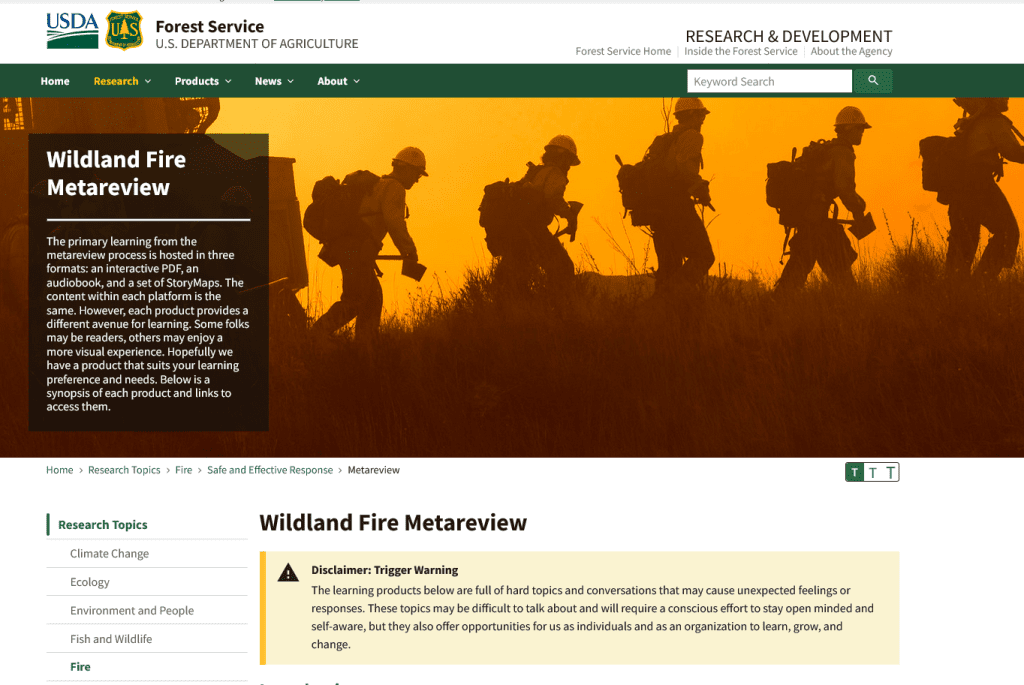 Here’s the link.
Here’s the link.
After the 2015 Twisp Fire, agency leadership directed the learning team to look across multiple years of incidents and accidents to see what lessons could be learned by taking a “meta” approach to systematically reviewing past events. Looking across multiple incidents allows themes to be detected in ways that single accidents don’t allow. Their review examined accidents and incidents, including fatality incidents, in the Forest Service over a 10-year period (2007-2016). Chapter 3 of the metareview includes the quantitative and qualitative analysis of this data.
From their analysis, five themes emerged. To dive deeper into the learning around these themes, in 2019 the learning team conducted five focus groups comprised of a cross-section of Forest Service employees who work in wildland fire management and academic subject matter experts. The focus group findings are detailed in chapters 4-12. The format is intentionally presented in an open way that is intended to facilitate discussion and individual and group learning. Each chapter highlights information from the meta-analysis and focus groups and then broadens the conversation by including learning challenges to prompt discussion among your local work group.
Out of the quantitative and qualitative work of the previous chapters, chapter 13 introduces an ongoing learning strategy.
As you work through the discussion tool and learning challenges, you will see the themes that emerged from the metareview effort:
Fatalities and injuries: Why are they continuing to occur?
Fiscal incentives: How does the current pay structure affect operational strategies and risk management?
Society: How do social and political pressures play into the wildland fire system?
Ecological soundness: How do ecological health and land management factors currently play into wildland fire decision making and strategy planning processes?
Communication/work environment: What do current successes and failures look like in the context of communication and the wildland fire work environment?
All these are great questions and ones that as an agency we continue to grapple with.
Obviously, the Forest Service did quite a bit of work on this. This isn’t an area of knowledge for me, so hoping TSW readers will look into this and give us your thoughts.